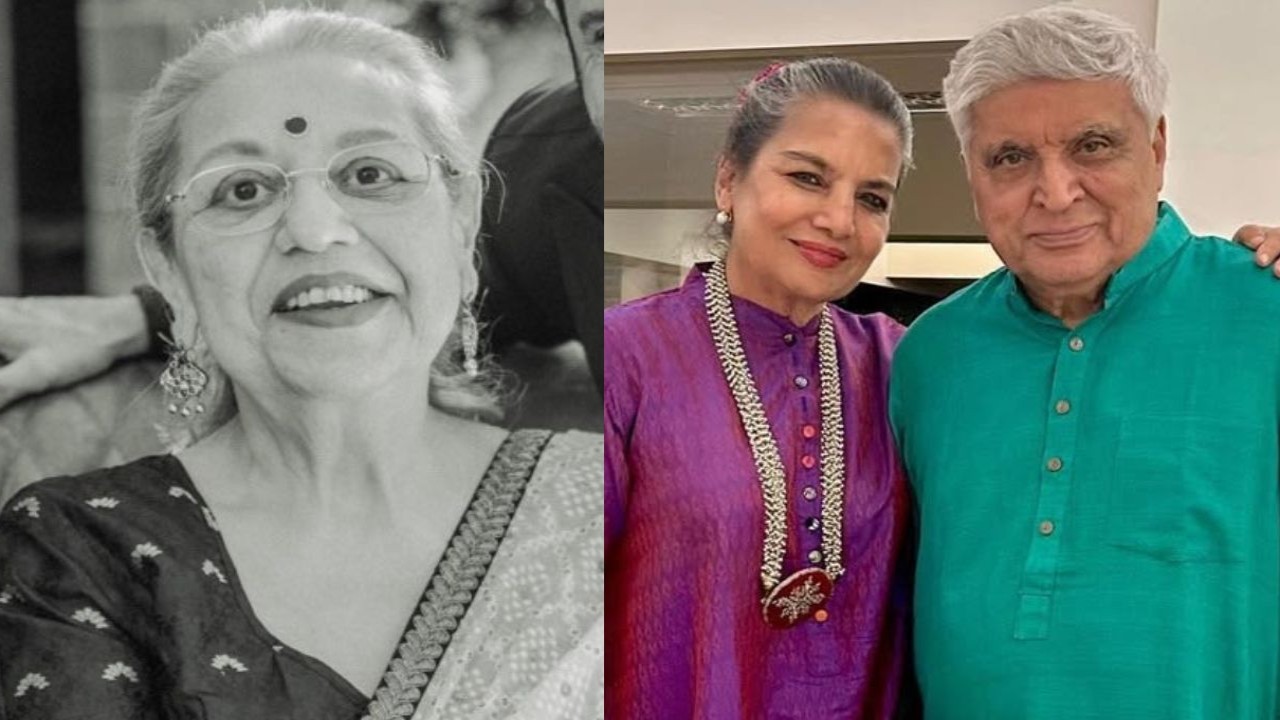In a world where public opinion is swift and unforgiving, standing your ground—especially as a woman—is nothing short of revolutionary. Shabana Azmi, a towering figure in Indian cinema and social justice, is no stranger to breaking the mold. But behind the accolades, the awards, and the decades of activism lies a personal chapter of her life that sparked both admiration and outrage: her marriage to lyricist Javed Akhtar.
Azmi was already a symbol of power, intellect, and progress when she made the controversial decision to marry Akhtar in 1984—a man who was still legally married to his first wife, screenwriter Honey Irani, and father to two young children, Zoya and Farhan. The backlash was immediate and brutal. She wasn’t just criticized—she was vilified. People who once celebrated her as the ultimate feminist suddenly turned on her, accusing her of betraying the very principles she stood for.
“It was like, with everything I said and did, I was stamping over another woman’s rights just to pursue my own happiness,” Shabana said in a heartfelt new interview with Filmfare. “And honestly, I think people had every right to feel that way. I didn’t expect anyone to excuse me. I just hoped time would show the truth.”
But instead of defending herself or engaging in public battles, Azmi did the unimaginable—she said nothing. For years. “I knew that explaining myself would only hurt the families involved. I chose silence. And in hindsight, that was very sagacious,” she said, her words wrapped in both wisdom and quiet pain.
Behind that silence, though, something remarkable happened. Instead of bitterness, there was grace. Instead of resentment, a bridge was built. Today, Azmi shares a warm, respectful bond with Honey Irani—a dynamic few would have imagined possible back in the ’80s. “The credit goes to all three of us—Javed, Honey, and me,” she said. “Honey never turned her children against me. That takes strength. That takes generosity.”
And as for Farhan and Zoya Akhtar—two of India’s most respected artists—they’ve spoken openly over the years about their love and admiration for Shabana, who became not a replacement, but an addition to their family.
Shabana Azmi’s story is not just one of fame and talent, but of humanity. Of choosing love despite judgment. Of accepting flaws in a world that demands perfection from women. Of navigating an emotional battlefield where silence became her strongest weapon.
“I didn’t stop being a feminist,” she said. “I just became a human being first.”
Now, more than four decades later, the narrative has shifted. The same public that once questioned her integrity now celebrates her honesty, her strength, and her deep emotional intelligence. From Arth to Dabba Cartel, from Parliament to protests, Azmi has never stopped redefining what it means to be a woman in power.
Her story is a reminder that feminism isn’t just about slogans—it’s about choices, mistakes, forgiveness, and growth. It’s about the right to live your truth, even when the world watches.
And that, perhaps, is Shabana Azmi’s most iconic role yet.
